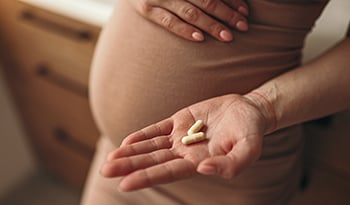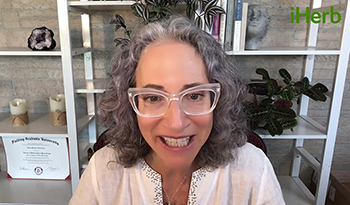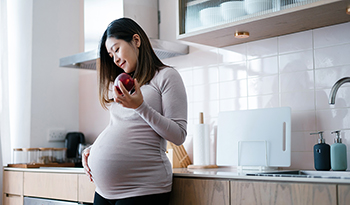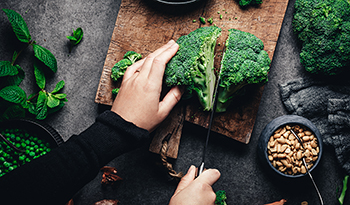緩解經前綜合症(PMS)症狀的七大秘訣
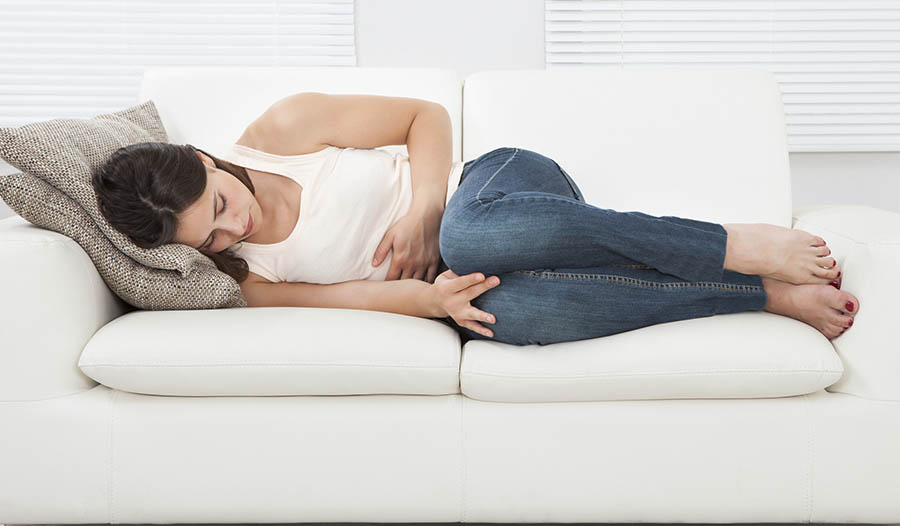
Premenstrual syndrome (PMS) is the recurrence of troublesome symptoms in the first seven to fourteen days of a woman's period. Typical symptoms include decreased energy levels, nervousness, irritability, depression, headaches, altered libido, breast pain, back pain, flatulence and edema of the fingers and ankles. Severe PMS, as well as depression, irritability, and extreme mood swings, are called PMS.
For many years, it has been generally believed that elevated estrogen and androgen levels and reduced progesterone levels 5 to 10 days before menstruation may lead to premenstrual syndrome. However, this view is outdated. The current mainstream thinking is that, not because of changes in blood estrogen and progesterone levels, PMS is the result of chemical changes in the brain that affect many factors, including the sensitivity of the brain to hormones. The main factor most commonly mentioned for PMS is the low level of the neurotransmitter serotonin . Not surprisingly, recent research suggests that many natural antidepressants may be beneficial for PMS.
Natural relief with diet and dietary supplements
- Reduce or eliminate the amount of animal foods in your diet and increase your intake of fiber- rich plant foods, including fruits, vegetables, cereals, and legumes. Vegetarian women excrete two to three times estrogen in their feces, and their free estrogen content in the blood is 50% lower than that of omnivores. These differences are thought to be the result of less fat and higher fiber intake in vegetarians.
- Reduce or eliminate caffeine intake. Considerable evidence suggests that caffeine intake is closely related to the presence and severity of PMS. Therefore, women with PMS must also avoid caffeine. Caffeine is particularly important for psychological symptoms such as anxiety, irritability, insomnia, and depression. Caffeine also adversely affects the way estrogen stimulates breast tissue, which can cause breast tenderness and fibrocystic breast disease.
- Eat more soybeans . There is also evidence that phytoestrogens may play a balancing role when estrogen levels are high, as is common in PMS. Eating soy food is the most economical and beneficial way to increase phytoestrogens intake. Vitamin B6 also has an effect on estrogen metabolism. Vitamin B6 is found in yam, leafy vegetables and beans.
- Less salt. Excessive intake of salt (sodium chloride), accompanied by a decrease in potassium in the diet , puts stress on the ability of the kidneys to maintain an appropriate fluid volume. As a result, some people are "sensitive to salt" because high salt intake causes high blood pressure or, in other cases, fluid retention. Generally, if you have PMS, it is best to avoid salt. If you notice more fluid retention in the second half of your menstrual cycle, you must reduce your salt intake.
- Diet supplements key nutrients. As mentioned above, vitamin B6 is essential for maintaining hormone balance. Vitamin B6 supplements have a positive effect on all PMS symptoms, especially depression, in many women. Improvement is achieved by lowering mid-luteal estrogen levels and increasing mid-luteal progesterone levels. Since 1975, at least twelve double-blind clinical trials have been conducted. In most cases, a daily therapeutic dose of 50 to 100 mg is generally considered safe, even for long-term use.
Magnesium deficiency, as the causative factor of premenstrual syndrome, has the greatest relationship with it. Patients with PMS had significantly lower red blood cell magnesium levels than subjects without PMS. Because magnesium plays a very important role in normal cell function, magnesium deficiency may be related to many symptoms of premenstrual syndrome. Although magnesium supplements have proven effective when taken alone, better results can be obtained by combining them with vitamin B6 and other nutrients. Several studies have shown that PMS symptoms can be significantly reduced in patients with premenstrual syndrome who receive high-dose magnesium and pyridoxine (vitamin B6) multivitamin and mineral supplements. The recommended range for magnesium intake is 300 to 450 mg per day.
Calcium supplementation significantly improved the symptoms of PMS in the double-blind study. Theoretically, based primarily on animal studies, calcium can improve the altered hormonal patterns, neurotransmitter levels, and smooth muscle responses noted in PMS. Further research supporting the importance of calcium supplements to alleviate symptoms of PMS is the discovery of reduced bone mineral density in women with PMS. The recommended calcium dose for PMS is 1000 to 1,500 mg per day.
患有經前期綜合徵的女性鋅水平較低。許多身體激素的適當作用,包括性激素,以及控制激素的分泌都需要鋅。鋅補充劑的建議範圍為15〜20mg。
- 嘗試服用含有聖潔莓的補充劑。聖潔莓(Vitex agnus-castus)提取物好像有助於緩解經前期綜合徵的症狀。在德國的兩項婦科實踐調查中,醫師將聖潔莓提取物分級為經前期綜合徵治療良好或非常好。超過1500名婦女參加了聖潔莓得研究。三分之一的婦女症狀完全解決,另有57%的婦女錶現出顯著改善,90%的婦女錶現出改善或解決。聖潔莓提取物似乎在黃體功能不全或催乳素過量的情況下特別有用。以片劑或膠囊形式服用的正常量的聖潔莓提取物(通常標準化為含有0.5%牡荊油)為175至225mg /天。如果您使用液體提取物,一般的劑量是每天2 ml。
- 試試銀杏葉提取物(GBE)。雖然銀杏葉提取物最著名的功效是改善腦的血液流動,但是在多項臨床試驗中也證明其對經前期綜合徵有很大的益處。它不僅改善經前期綜合徵的心理抱怨,還改善一些身體問題。例如,在165名經前期綜合徵婦女的雙盲研究中,從月經週期第16天至第5天循環使用銀杏葉提取物每日兩次,每次80 mg,患者表現出相當大的益處。病人記錄的症狀日記和醫師對症狀的評估表明,銀杏葉提取物在緩解一些經前期綜合徵患者的乳房疼痛和壓痛方面特別有效。
血清素如何?
You may ask: "If one of the main characteristics of most women with PMS is a decrease in serotonin, how can I increase it?" Although doctors prescribe selective serotonin reuptake inhibitor drugs, such as Prozac ( Prozac), Zoloft, Paxil, and their analogs increase serotonin levels, and there are natural compounds that offer some advantages. Although these drugs are accompanied by significant concerns about side effects, including weight gain, several natural alternatives have been shown to provide comparable benefits with fewer side effects. My choice is to keep using natural antidepressants until two months after the seven recommendations above, and unless depression is the main premenstrual syndrome problem, then I recommend starting immediately. Although St. John's wort extract is most supportive in clinical studies of PMS (and depression) at doses of 900 to 1,800 mg per day, I think the effect of 5-HTP is more suitable for typical PMS patients Symptoms (especially if craving for sugar is a big problem). 5-HTP is an intermediate step in the conversion of the amino acid tryptophan into serotonin. As a strategy to increase serotonin levels, it has significant advantages over tryptophan. Although some studies have shown that tryptophan supplements are helpful for premenstrual syndrome, my feeling is that if there is a study comparing the two, there is no comparability at all, because the advantages of 5-HTP far exceed tryptophan. My recommendation for patients with premenstrual syndrome is to take 50 to 100 mg of 5-HTP from the 17th day of the cycle to the 3rd day of menstruation. If they are down or craving for sugar throughout the month, I would also recommend taking it throughout the month.
免責聲明:本健康中心不提供診斷⋯
















































































 目錄
目錄





